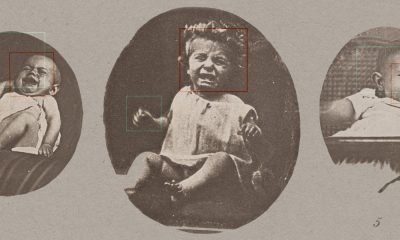Even as more people become vaccinated against the coronavirus, allowing hope to peek out on the horizon for all to feel, worry and stress have not gone away. Anyone might buckle under the added stress and anxiety, but for those with undiagnosed or untreated anxiety issues, the struggle is likely greater. But some hope is peeking out for these people as well; there are solid strategies for handling these challenges and finding help if needed or wanted. The following come courtesy of the National Institute of Mental Health.
What are stress and anxiety?
Krystal Lewis, PhD, a licensed clinical psychologist at the NIMH, held a virtual discussion earlier this year about stress and anxiety. “Stress is the physical or mental response to an external cause such as having a lot of homework to do, having an illness, or experiencing difficulty paying your bills,” while “anxiety is your body’s reaction to the stress.” In short, stress is the cause and anxiety is the symptom.
As one might expect, those who have reported that they have been anxious are increasing in number. A questionnaire based on a standard mental health screening assessment and sent to more than 336,000 people in the early days of the pandemic revealed that compared to 2019, adults were more than 3 times as likely to be positive for either depressive or anxiety disorders, and many screened positive for both.
How can I manage my stress?
Said Dr. Lewis: “The first step to restoring a sense of calm is what I call disrupting anxiety. Once you’re aware of the anxiety, you can do certain things to disrupt the worrying and the anxious feelings that you experience. This means you can challenge anxious or irrational thoughts by reframing your worries.”
How do you reframe those worries? It’s time to be GREAT.
- Grateful: “Find small things each day to be grateful about.”
- Relaxation: “Do things that help you to calm down and relax.”
- Exercise: “We know that activity is important, so try to implement that in your day.”
- Acknowledge: “Be aware of the many feelings, and accept them as they occur.”
- Track your thinking: “Ensure that you are engaging in helpful thinking.”
The key is to focus on your own life at the moment, Dr. Lewis said. Don’t compare now to the pre-pandemic past or how you think others are doing. You can’t do much to control the world at large, and you don’t have a full view of what’s going on in any other person’s life.
But you can manage you.
“We need to attend to what we do have control over,” Dr. Lewis said. Build your routine, create schedules when possible, and pay attention to your feelings. People will have some good days, and days they’d like to forget about, “but that’s okay.”
Knowing when to get help
There’s definitely value in practicing mindfulness and self-help routines, but they won’t be enough for all people with untreated anxiety. After a certain point, run-of-the-mill anxiety can become an anxiety disorder — a medical condition that a trained professional can treat.
According to Dr. Lewis, the rule of thumb is that anxiety and worry become a clinical problem when someone is anxious and worried on a consistent basis, and when these two disrupt that person’s daily life for a period of six months or more.
Treatment discussion
Medical professionals use therapy and medicine to treat anxiety.
Using two branches of therapy, cognitive and exposure, therapists can help guide patients through the process of identifying and addressing their anxiety. Cognitive therapy focuses on getting rid of the negative thoughts that lead to anxiety, while exposure therapy is based on overcoming fear. Cognitive therapy often involves learning how and when to best use relaxation and other techniques similar to the ones addressed above. Exposure therapy focuses on directly facing the causes of anxiety, one step at a time, in a safe environment.
When therapy alone doesn’t work, various medicines can be used. Dr. Lewis stressed that medication does not “cure” an anxiety disorder — it instead treats the symptoms, making daily life easier and potentially allowing therapy to become more effective.
Some medicines, like a class called benzodiazepines, are very potent. They are prescribed for short periods of time so the patient doesn’t develop a resistance. Another therapy class, the antidepressants, take more time to work but can be used long-term. Each medicine has benefits and drawbacks, and they should only be used under the supervision of a licensed professional.
The take home
Everyone’s under a lot of stress these days. It’s important to take a step back and re-examine your situation and what you can do about it. For some people, anxiety may be more intense than in others. There’s no shame in needing help from a professional, and if you’re grappling with stress or anxiety that just aren’t going away, be kind to yourself and reach out to a professional.
Sean Marsala is a health writer based in Philadelphia, Pa. Passionate about technology, he can usually be found reading, browsing the internet and exploring virtual worlds.
















You must be logged in to post a comment Login